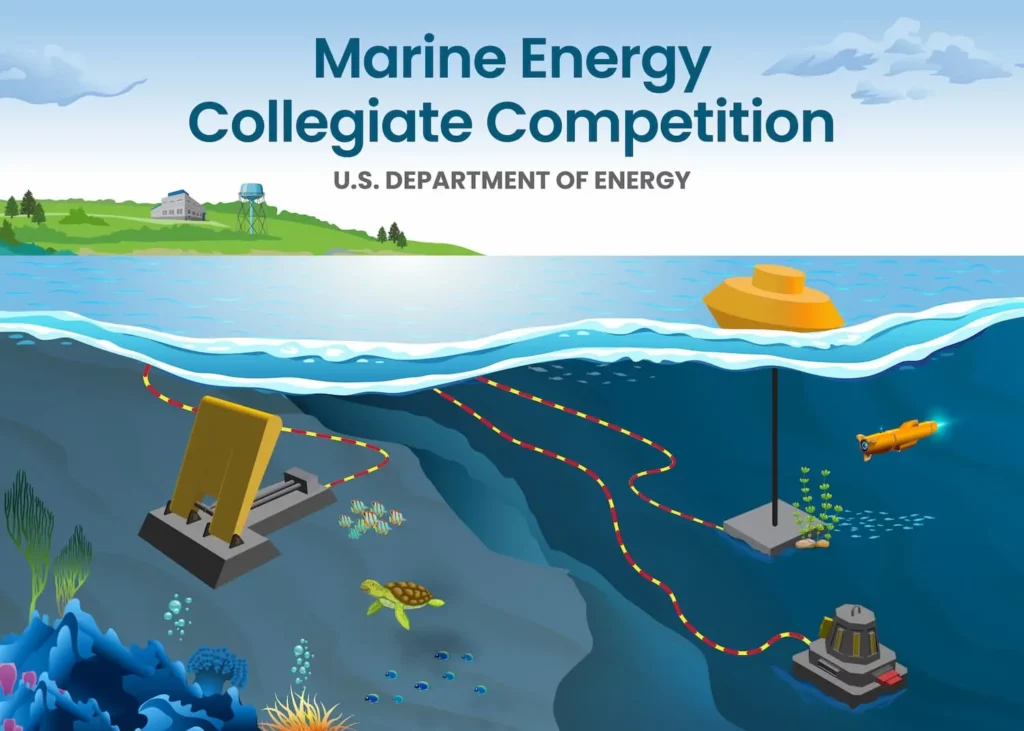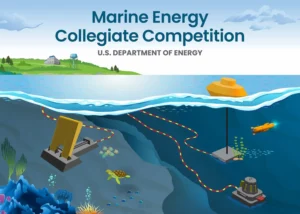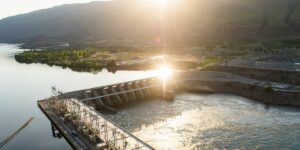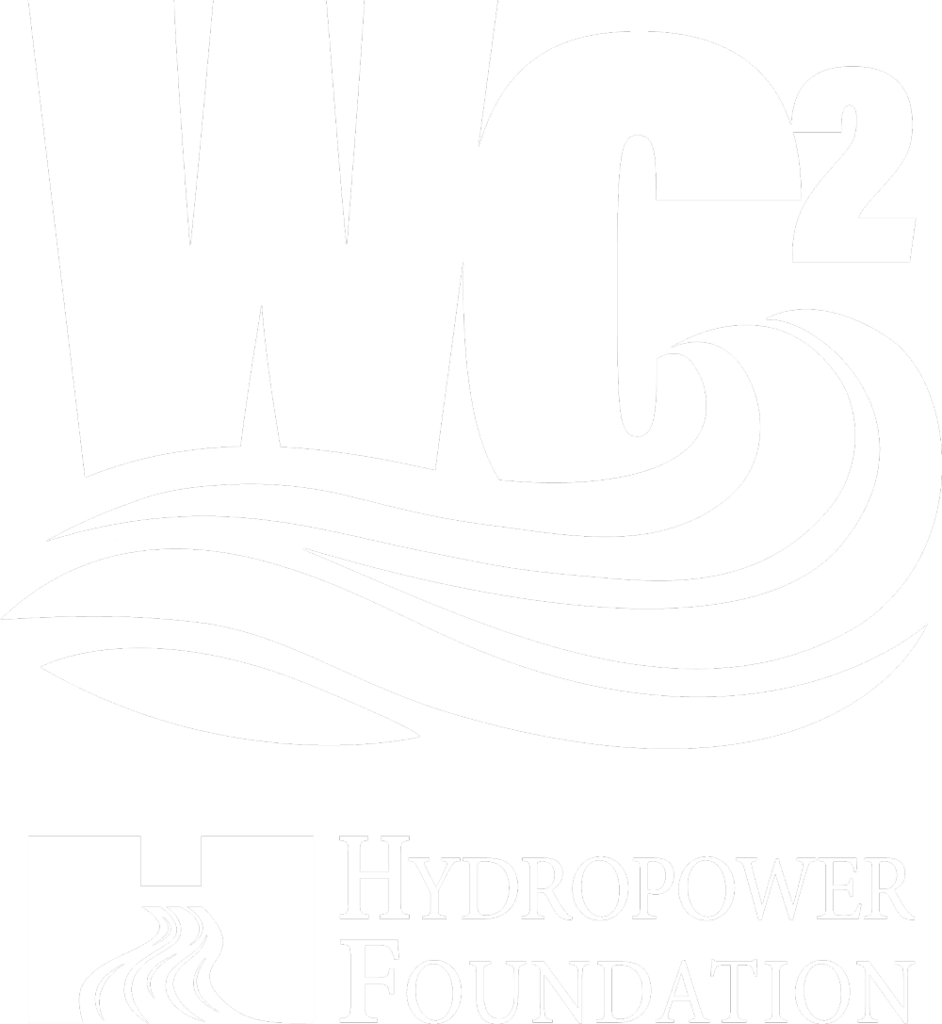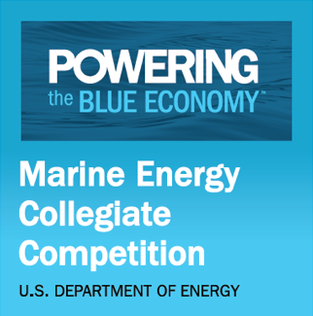
Marine energy—power generated from ocean waves, currents, tides, and temperature changes—is the world’s largest untapped renewable energy resource. However, further work is needed to optimize marine energy device designs and reduce costs.
Nurturing the Future Blue Economy Workforce
To help advance the marine energy industry and prepare the future marine energy workforce, the U.S. Department of Energy’s Water Power Technologies Office created the Marine Energy Collegiate Competition (MECC) in 2019 . Part of WPTO’s Powering the Blue Economy initiative, the MECC invites interdisciplinary teams of undergraduate and graduate students to:
- Identify the most promising near-term markets for marine energy
- Design an appropriate marine energy device to serve market applications that could have commercial value within the next five years.

Although few academic institutions offer marine-specific advanced degrees, having experience related to marine energy is highly valuable for prospects within a wide range of blue economy opportunities. Jobs across the blue economy include opportunities for:
- Communications and marketing specialists
- Project managers
- Educators
- Engineers
- Financial analysts
- Researchers
- Scientists
- Sales representatives
By participating in the MECC, students build the real-world experience and industry connections that will help them prepare for careers in the marine energy sector and the blue economy.
Who Can Participate
Teams must meet the following criteria to be eligible:
- Teams may consist of a combination of post-secondary, undergraduate, and graduate students, but must be at least 50% post-secondary and/or undergraduates.
- Both U.S. and non-U.S. institutions are welcome to apply and participate.
- Non-U.S. institutions are not eligible to receive cash prize funding.
- In a team with students from U.S. and non-U.S. institutions, the lead institution must be a U.S. academic institution accredited by the U.S. Department of Education [BA1] to be eligible for cash prize funding.
- Teams should strive to include a diverse range of academic disciplines, including but not limited to:
- Engineering
- Business
- Marketing
- Communications
- Environmental and Public Policy
- Social Sciences
- Teams should also strive to include in their teams individuals from groups historically underrepresented in science, technology, engineering, and mathematics.
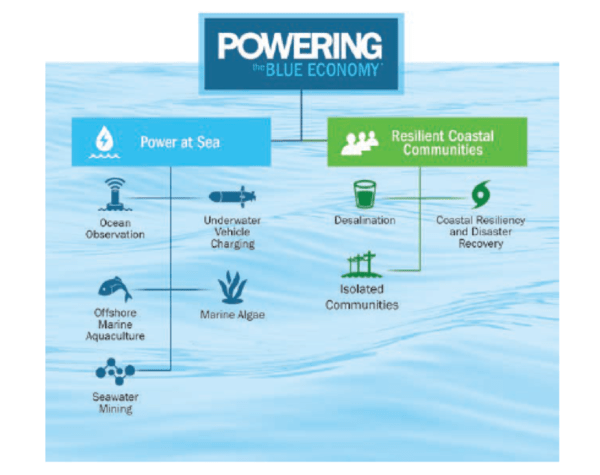
How to Get Involved
Follow the Competition
Competition Structure
The MECC invites selected teams to identify a promising market within the blue economy and to determine the best marine energy application within that market to address. Over the course of school year, teams develop materials for two required contests and one optional challenge, outlined below. Teams present their work at the MECC final event, typically held in conjunction with the National Hydropower Association’s Waterpower Week.
MECC teams compete in four required contests:
- Business Plan Challenge: Teams will identify a promising market within the blue economy (either a market identified in the WPTO Powering the Blue Economy report or another potential market within the blue economy) and determine, within that market, the best marine energy application to address. Submissions in this challenge will count for approximately 33% of the total final score.
- Technical Design Challenge: Teams will evaluate the performance requirements in their chosen blue economy market by identifying and interviewing at least three potential end users. Teams will complete a detailed design of a marine-energy-powered device to serve those end users. Submissions in this challenge will count for approximately 33% of the total final score.
- In the Build and Test Challenge: Competitors will build a scaled prototype of their concept and perform a series of lab tests. The submissions in this challenge will count for approximately 14% of the total final score.
- Community Connections Challenge: Competitors will foster connections with the broader marine energy industry and with their local community. The submissions in this challenge will count for approximately 19% of the total final score.
Competition News
- March 22, 2023: U.S. Department of Energy Opens Applications for Second Annual Hydropower and Fifth Annual Marine Energy Collegiate Competitions
- June 1, 2022: DOE Announces Winners of 2022 Marine Energy Collegiate Competition
- April 7, 2022: DOE Launches Inaugural Hydropower and Fourth Annual Marine Energy Collegiate Competitions
- May 20, 2021: Wave Hello to the 2022 Marine Energy Collegiate Competition Teams
- May 20, 2021: DOE Announces the 2022 Marine Energy Collegiate Competition Contenders
- April 30, 2021: 2021 Marine Energy Collegiate Competition Awards Ceremony
- April 30, 2021: Three Winners Claim Top Honors at 2021 Marine Energy Collegiate Competition
- April 30, 2021: 2021 Marine Energy Collegiate Competitors Help Chart the Blue Economy Course
- April 5, 2021: Calling All Marine Tech Titans: The Third Marine Energy Collegiate Competition Is Now Open for Applications!
- March 17, 2021: Marine Energy Collegiate Competition Competitors to Set Sail This Spring: 2022 Competition Opens for Applications April 5
- October 15, 2020: Meet the 2021 Marine Energy Collegiate Competition Contenders: National Renewable Energy Laboratory Announces 17 Teams To Compete This Spring
- July 23, 2020: Energy Department Announces 2020 Marine Energy Collegiate Competition Winning Teams
- June 23, 2020: Marine Energy Collegiate Competition 2021 Opens for Applications in August
- May 21, 2020: Energy Department Moves Marine Energy Collegiate Competition to Virtual Format
- June 11, 2020: National Ocean Month: Celebrating Careers in Marine Energy
- March 30, 2020: Women Making Waves in Marine Energy Research
- March 3, 2020: Taking the Plunge: Inaugural Marine Energy Collegiate Competition Competitors Dive In
- November 18, 2019: Say Hello to Your 2020 Marine Energy Collegiate Competition Participants

